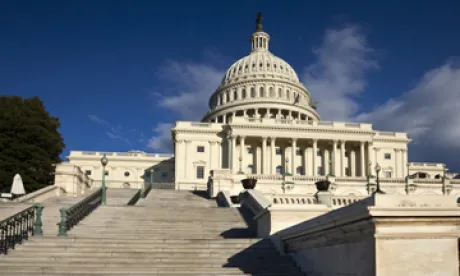On May 17, 2021, U.S. Attorney General Merrick Garland announced the establishment of the COVID-19 Fraud Enforcement Task Force, an interagency task force created to “use every available federal tool—including criminal, civil, and administrative actions—to combat and prevent COVID-19 related fraud.”[1]
Given the magnitude of the COVID-19 relief programs, this Task Force has its work cut out for it. The SBA has issued approximately $755 billion in Paycheck Protection Program (“PPP”) [2] loans and another $202 billion in Economic Injury Disaster Loans (“EIDL”)[3] since the CARES Act was signed into law in March 2020. To date, at least 242 individuals have been criminally charged by the Department of Justice. These charges involved over $446 million in PPP Program fraud and have resulted in at least 48 convictions so far.[4] And these prosecutions are likely the tip of the iceberg.
Some estimates suggest that the “fraud rate” in PPP loans might be above 5%.[5] By comparison, the estimated fraud rate in the 2009 American Recovery and Reinvestment Act was 1%.[6] As a result, it is likely that enforcement actions relating to the CARES Act will be substantially more numerous than those conducted in connection with prior relief programs. A March 25 memorandum released by the Select Subcommittee on the Coronavirus Crisis described Biden-Harris Administration’s efforts to “ramp[] up oversight” in response to an enormous uptick in hotline complaints to the SBA Office of the Inspector General: 148,525 complaints (an increase of 19,500% from prior years) and 1.34 million referrals for suspected fraud.[7] One of the Task Force’s goals will be to sift through this mountain of complaints to determine which merit investigation and prosecution.
The formation of the Task Force also signals that, even though some relief programs have wound down, borrowers still face possible governmental scrutiny for past representations related to these relief programs. As a result, it is important to keep business records and supporting evidence (such as tax filings, payment receipts, payroll records and mortgage or rent statements) for applications for loans, loan forgiveness or other relief programs. A business that can use documentary evidence to prove the truth of representations made in relief applications will be able to respond effectively to a government investigation.
Borrowers should also be aware of their individual risk profile. Given the volume of complaints and reports to investigate, regulators and law enforcement will be likely to focus on what they deem to be high priority targets. That list might include perceived bad apples who may have violated other laws or regulations, high value loans or grants, loans or grants to multiple affiliated businesses or businesses in industries already subject to significant government oversight. Borrowers who are aware of their risk profile will be able to make efficient and effective decisions to prepare for and avoid potential scrutiny. For high-risk businesses, more aggressive and/or costly compliance measures may be justified, including, for example, securing a third-party review of applications and supporting documents. Likewise, high-risk businesses should consider reevaluating aggressive business strategies which might toe the line of unrelated legal boundaries to avoid becoming a priority target for investigators.
Understanding a business’s risk profile also requires an understanding of what information about that business may already be available to investigators. Businesses that received COVID-19 relief funds will, inevitably, have disclosed a substantial amount of information to the government both in connection with those applications and in the ordinary course of their operations. Investigators can compare representations made in connection with relief program applications against tax or regulatory filings to identify potential instances of fraud, without serving a search warrant or contacting a potential target. Indeed, it is likely that searching through existing datasets for indications of fraud will be one of the Tasks Force’s early priorities. As a result, borrowers should be sure that the representations made in their relief applications are consistent with other governmental filings and be prepared to explain and justify any existing inconsistencies. Analyzing these records in advance can identify potential inconsistencies in advance and allow a business to develop an effective response to a government investigation should one be initiated.
[1] https://www.justice.gov/opa/pr/attorney-general-announces-task-force-combat-covid-19-fraud
[2] https://www.sba.gov/sites/default/files/2021-04/PPP_Report_Public_210411-508.pdf
[3] https://www.sba.gov/sites/default/files/2021-04/2021.04.02%20-%20SBA%20COVID%20Relief%20Program%20Report%20-%20vFINALSHARE-508.pdf
[4] https://coronavirus.house.gov/sites/democrats.coronavirus.house.gov/files/2020-03-25%20Staff%20Memo%20-%20Small%20Business%20Fraud.pdf
[5] https://federalnewsnetwork.com/agency-oversight/2020/09/igs-on-pandemic-oversight-board-warn-job-well-done-still-means-billions-in-fraud/
[6] Id.
[7] See Note 4 supra.





 />i
/>i
